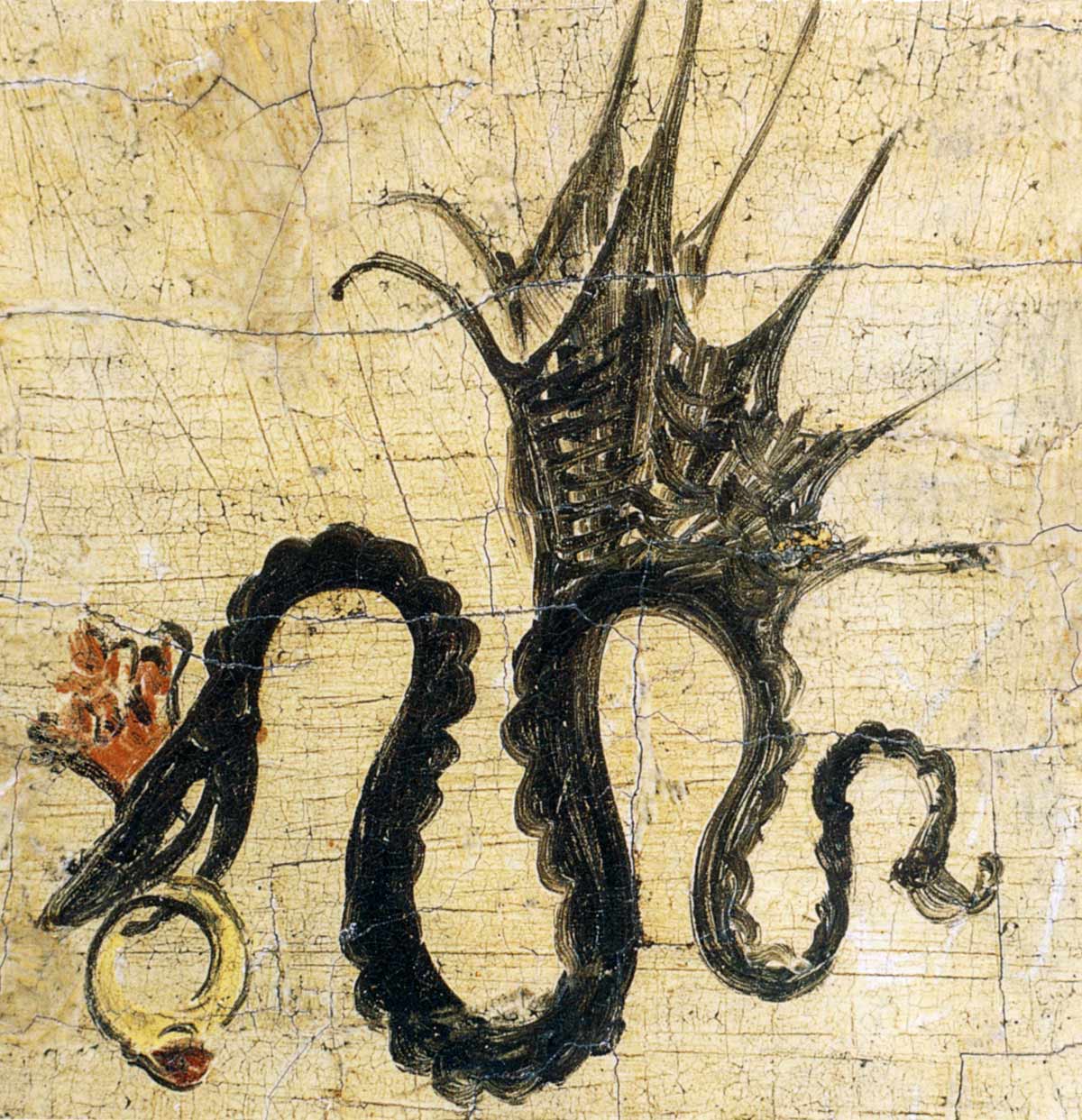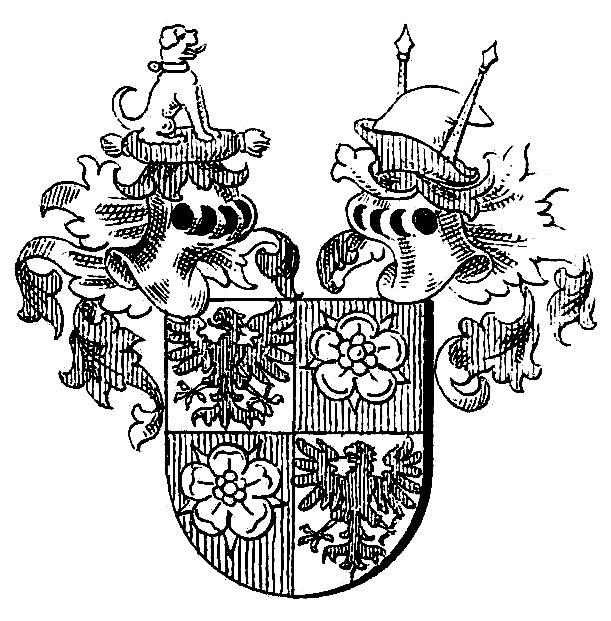|
John V, Prince Of Anhalt-Zerbst
John V of Anhalt-Zerbst (Dessau, 4 September 1504 – Zerbst, 4 February 1551), was a German prince of the House of Ascania and ruler of the principality of Anhalt-Dessau. From 1544, he assumed rule of the re-created principality of Anhalt-Zerbst. John was the second (but eldest surviving) son of Ernest I, Prince of Anhalt-Dessau, by his wife Margarete, daughter of Henry I, Duke of Münsterberg-Oels, and granddaughter of George of Poděbrady, King of Bohemia. Life Upon the death of his father in 1516, John and his brothers George III and Joachim I inherited Anhalt-Dessau as co-rulers according to the family law of the House of Ascania. During their first years of rule, their mother Margarete served as regent. The brothers shared the government of the principality for almost twenty-eight years, until 1544, when they decided to divide up their territories. John received Zerbst, thereby reviving the old principality of Anhalt-Zerbst that became extinct in 1396 with the creat ... [...More Info...] [...Related Items...] OR: [Wikipedia] [Google] [Baidu] |
Lucas Cranach The Elder
Lucas Cranach the Elder (german: Lucas Cranach der Ältere ; – 16 October 1553) was a German Renaissance painter and printmaker in woodcut and engraving. He was court painter to the Electors of Saxony for most of his career, and is known for his portraits, both of German princes and those of the leaders of the Protestant Reformation, whose cause he embraced with enthusiasm. He was a close friend of Martin Luther. Cranach also painted religious subjects, first in the Catholic tradition, and later trying to find new ways of conveying Lutheran religious concerns in art. He continued throughout his career to paint nude subjects drawn from mythology and religion. Cranach had a large workshop and many of his works exist in different versions; his son Lucas Cranach the Younger and others continued to create versions of his father's works for decades after his death. He has been considered the most successful German artist of his time. Early life He was born at Kronach in upper ... [...More Info...] [...Related Items...] OR: [Wikipedia] [Google] [Baidu] |
Philip I, Duke Of Pomerania-Wolgast
Philip I of Pomerania (14 May 1515, in Stettin – 14 February 1560, in Wolgast) was Duke of Pomerania-Wolgast. Life Philip was the only surviving son of Duke George, from his first marriage to Amalie of the Palatinate. After his mother died, on 6 January 1525, he received his education at the court of his maternal grandfather in Heidelberg. He took office in Stettin at the age of 16, after the death of his father. On 21 October 1532, Philip and his uncle Barnim IX split Pomerania, with Philip taking Pomerania-Wolgast (Vorpommern). The division was initially limited to only nine years. It was, however, reconfirmed in 1541. His main advisors were Jobst von Dewitz, Rüdiger von Massow and his Chancellor, Nikolaus Brun. His secretary was the chronicler Thomas Kantzow. When he came to power, his first task was to sort out the relationship with his unloved step-mother, Margaret of Brandenburg. Under the marriage treaty of 1530, she was entitled to a specified part of his country ... [...More Info...] [...Related Items...] OR: [Wikipedia] [Google] [Baidu] |
Princes Of Anhalt-Zerbst
A prince is a male ruler (ranked below a king, grand prince, and grand duke) or a male member of a monarch's or former monarch's family. ''Prince'' is also a title of nobility (often highest), often hereditary, in some European states. The female equivalent is a princess. The English word derives, via the French word ''prince'', from the Latin noun , from (first) and (head), meaning "the first, foremost, the chief, most distinguished, noble ruler, prince". Historical background The Latin word (older Latin *prīsmo-kaps, literally "the one who takes the first lace/position), became the usual title of the informal leader of the Roman senate some centuries before the transition to empire, the ''princeps senatus''. Emperor Augustus established the formal position of monarch on the basis of principate, not dominion. He also tasked his grandsons as summer rulers of the city when most of the government were on holiday in the country or attending religious rituals, and, for ... [...More Info...] [...Related Items...] OR: [Wikipedia] [Google] [Baidu] |
Principality Of Anhalt-Zerbst
Anhalt-Zerbst was a principality of the Holy Roman Empire ruled by the House of Ascania, with its residence at Zerbst in present-day Saxony-Anhalt. It emerged as a subdivision of the Principality of Anhalt from 1252 until 1396, when it was divided into the principalities of Anhalt-Dessau and Anhalt-Köthen. Recreated in 1544, Anhalt-Zerbst finally was partitioned between Anhalt-Dessau, Anhalt-Köthen, and Anhalt-Bernburg in 1796 upon the extinction of the line. History It was created when the Anhalt territory was divided among the sons of Prince Henry I into the principalities of Anhalt-Aschersleben, Anhalt-Bernburg and Anhalt-Zerbst in 1252. In the course of the partition, Prince Siegfried I, the youngest son of Henry I, received the lands around Köthen, Dessau, and Zerbst. His son and successor Prince Albert I took his residence at Köthen Castle in 1295. In 1396, the surviving sons of Prince John II of Anhalt-Zerbst again divided their heritage: Sigismund I became Prince ... [...More Info...] [...Related Items...] OR: [Wikipedia] [Google] [Baidu] |
Principality Of Anhalt-Dessau
Anhalt-Dessau was a principality of the Holy Roman Empire and later a duchy of the German Confederation. Ruled by the House of Ascania, it was created in 1396 following the partition of the Principality of Anhalt-Zerbst, and finally merged into the re-united Duchy of Anhalt in 1863. The capital of the state was Dessau in present-day Saxony-Anhalt. History The Principality of Anhalt arose in 1212 under its first ruler Henry I, son of the Saxon duke Bernhard III. Named after Anhalt Castle, the ancestral seat of the Ascanian dynasty near Harzgerode, the principality experienced a number of partitions throughout its centuries-long existence. The Anhalt territory was divided among the sons of Prince Henry I into the principalities of Anhalt-Aschersleben, Anhalt-Bernburg and Anhalt-Zerbst in 1252. In the course of the partition, Prince Siegfried I, the youngest son of Henry I, received the lands around Köthen, Dessau, and Zerbst. His son and successor Prince Albert I took ... [...More Info...] [...Related Items...] OR: [Wikipedia] [Google] [Baidu] |
Wolfgang II, Count Of Barby-Mühlingen
Wolfgang is a German male given name traditionally popular in Germany, Austria and Switzerland. The name is a combination of the Old High German words ''wolf'', meaning "wolf", and ''gang'', meaning "path", "journey", "travel". Besides the regular "wolf", the first element also occurs in Old High German as the combining form "-olf". The earliest reference of the name being used was in the 8th century. The name was also attested as "Vulfgang" in the Reichenauer Verbrüderungsbuch in the 9th century. The earliest recorded famous bearer of the name was a tenth-century Saint Wolfgang of Regensburg. Due to the lack of conflict with the pagan reference in the name with Catholicism, it is likely a much more ancient name whose meaning had already been lost by the tenth century. Grimm ('' Teutonic Mythology'' p. 1093) interpreted the name as that of a hero in front of whom walks the "wolf of victory". A Latin gloss by Arnold of St Emmeram interprets the name as ''Lupambulus''.E. F� ... [...More Info...] [...Related Items...] OR: [Wikipedia] [Google] [Baidu] |
Barby, Germany
Barby () is a town in the Salzlandkreis district, in Saxony-Anhalt, Germany. It is situated on the left bank of the River Elbe, near the confluence with the Saale, approx. southeast of Magdeburg. Since an administrative reform of 1 January 2010 it comprises the former municipalities of the ''Verwaltungsgemeinschaft'' Elbe-Saale, except for Gnadau, that joined Barby in September 2010. The Barby Ferry, a reaction ferry across the Elbe, links Barby with Zerbst- Walternienburg. Geography The town Barby consists of the following ''Ortschaften'' or municipal divisions:Hauptsatzung der Stadt Barby May 2019. *Barby * Breitenhagen * [...More Info...] [...Related Items...] OR: [Wikipedia] [Google] [Baidu] |
Elisabeth Of Anhalt-Zerbst (1545–1574)
Elisabeth of Anhalt (15 October 1545, Dessau – 26 September 1574, Barby) was a German abbess of the secular abbeys at Gernrode and Frose as ''Elisabeth III of Anhalt''. After she left the convent, she became Countess of Barby by marriage. Life Elisabeth was a daughter of the prince John V of Anhalt (1504–1551) from his marriage to Margaret (1511–1577), the daughter of Elector Joachim I of Brandenburg. In 1565, Elisabeth was elected abbess of the imperial abbey of St. Cyriac in Gernrode Gernrode () is a historic town and former municipality in the Harz District, in Saxony-Anhalt, Germany. Since 1 January 2014, it has been part of Quedlinburg. [...More Info...] [...Related Items...] OR: [Wikipedia] [Google] [Baidu] |
Bernhard VII, Prince Of Anhalt-Zerbst
Bernhard VII of Anhalt-Zerbst (17 March 1540 – 1 March 1570), was a German prince of the House of Ascania and ruler of the principality of Anhalt-Zerbst. He was born and died in Dessau, and was the third and youngest son of John V, Prince of Anhalt-Zerbst by his wife Margaret, daughter of Joachim I Nestor, Elector of Brandenburg. Life Bernhard inherited Anhalt-Zerbst when his father died in 1551 along with his older brothers Karl I and Joachim Ernest according to the stipulations of the family law of the House of Ascania, which mandated no division of the territories of the principality. Upon the deaths without issue of his uncles George III of Anhalt-Plötzkau in 1553 and Joachim I of Anhalt-Dessau in 1561, Bernhard and Joachim Ernest inherited their lands, which were merged into Anhalt-Zerbst (Karl only inherited Plötzkau, because he died before Joachim I). In 1562 Anhalt-Köthen was also merged into Anhalt-Zerbst after the death without issue of its last prince, Wolf ... [...More Info...] [...Related Items...] OR: [Wikipedia] [Google] [Baidu] |
Albert X, Count Of Barby-Mühlingen
Albert may refer to: Companies * Albert (supermarket), a supermarket chain in the Czech Republic * Albert Heijn, a supermarket chain in the Netherlands * Albert Market, a street market in The Gambia * Albert Productions, a record label * Albert Computers, Inc., a computer manufacturer in the 1980s Entertainment * ''Albert'' (1985 film), a Czechoslovak film directed by František Vláčil * ''Albert'' (2015 film), a film by Karsten Kiilerich * ''Albert'' (2016 film), an American TV movie * ''Albert'' (Ed Hall album), 1988 * "Albert" (short story), by Leo Tolstoy * Albert (comics) Abomination Absorbing Man Abraxas Abraxas, sometimes called the Dark Man, is a cosmic entity who embodies the destruction of the Marvel multiverse. The existence of Galactus prevents him from emerging. The character, created by Carlos Pach ..., a character in Marvel Comics * Albert (Discworld), Albert (''Discworld''), a character in Terry Pratchett's ''Discworld'' series * Albert (suspiria) ... [...More Info...] [...Related Items...] OR: [Wikipedia] [Google] [Baidu] |



